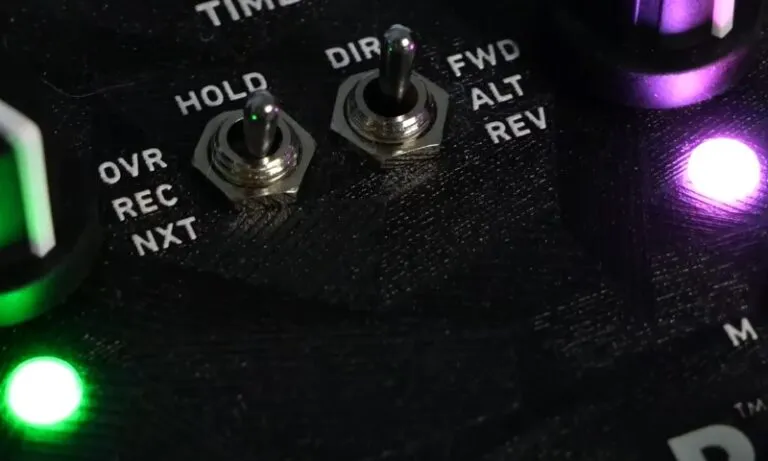When it comes to crafting the perfect sound on your guitar, the type of strings you choose plays a crucial role.
The ones you choose don’t just affect the tone of your guitar, they can also influence the ease of playability, the dynamics of your sound, and even the longevity of your instrument’s performance.
In this guide of ours, we will talk about different types of guitar strings, breaking down their characteristics, sound profiles, and which types of players might benefit most from them.
By the end, you’ll be equipped with the knowledge to pick the best ones for your style, whether you’re looking to add brightness, warmth, or sustain to your sound.
1. 80/20 Bronze Acoustic

- Material: 80% copper, 20% zinc
- Sound: Bright, crisp, but mellows with time
- Best for: Live performances or band settings
80/20 bronze acoustic guitar strings are made from an alloy consisting of:
- 80% copper
- 20% zinc
The combination produces a bright, crisp tone that cuts through in live performances, making it a favorite for stage musicians.
However, these do tend to mellow with time, gradually losing some of their initial brightness, making them more suitable for short-term use if you’re after that initial punchy sound.
Despite their quick tonal change, they excel in band settings where you need to be heard over other instruments.
2. Halfwound
- Material: Combination of round and flatwound
- Sound: Balanced tone with reduced brightness
- Best for: Smooth playing with minimal string noise
Halfwound strings are a hybrid between roundwound and flatwound.
These offer a balanced tone that combines the brightness of roundwound with the smoothness of flatwound guitar strings.
The outer layer of the winding is ground down to create a semi-flat surface, reducing noise without completely sacrificing the high-end clarity.
3. Phosphor Bronze Acoustic
- Material: Copper, tin, phosphorus
- Sound: Warm, balanced, with longer lifespan
- Best for: Versatile styles and frequent practice
Phosphor bronze acoustic guitar strings are known for their warm, balanced tone, which gives them an advantage over 80/20 bronze strings when it comes to longevity.
Composed of copper, tin, and a bit of phosphorus, these are resilient and maintain their sound quality for extended periods.
They are ideal for versatile playing styles, as they produce a rich sound that can suit both fingerpicking and strumming. Their longer lifespan makes them a great choice for musicians who practice frequently.
4. Silk and Steel Acoustic
- Material: Steel core with silk or nylon winding
- Sound: Mellow, full with low tension
- Best for: Fingerstyle playing and folk music
Silk and steel strings feature a steel core with silk or nylon winding, creating a softer, mellow tone ideal for fingerstyle playing.
The reduced tension of these strings makes them easier on the fingers, allowing for more expressive playing without the discomfort of higher-tension ones.
That makes them a favorite among folk musicians and acoustic players who prefer a gentler touch. Their mellow tone complements quieter settings, making them great for solo performances or softer musical genres.
5. Nickel-Plated Steel Electric

- Material: Steel core with nickel plating
- Sound: Bright with moderate warmth
- Best for: Rock, blues, and general-purpose electric playing
Nickel-plated steel electric guitar strings provide a balanced tone that is both bright and warm.
The steel core ensures a robust sound, while the nickel plating adds warmth, making these versatile enough for rock, blues, and general-purpose electric playing.
Their durability makes them a go-to choice for guitarists who need reliable strings that can withstand heavy playing without losing tone quality.
6. Pure Nickel Electric
- Material: 100% nickel
- Sound: Warm, vintage tone with less treble
- Best for: Blues and classic rock
Pure nickel electric guitar strings deliver a smooth, warm, vintage tone that sets them apart from the sharper, more modern-sounding nickel-plated strings.
Their soft treble response is particularly well-suited for blues and classic rock players looking to emulate a vintage sound.
The tonal warmth of pure nickel makes these an excellent choice for guitarists who favor smooth, mellow tones over the high-end brightness of modern electric ones.
7. Stainless Steel Electric

- Material: Stainless steel
- Sound: Crisp, bright, and durable
- Best for: Metal, hard rock, and players with acidic sweat
Stainless steel electric guitar strings are highly durable and resistant to corrosion, making them ideal for players with acidic sweat or those who live in humid climates.
Known for their crisp, bright tone, these excel in genres like metal and hard rock, where clarity and attack are essential.
They offer excellent longevity and are favored by musicians who demand strings that can withstand intense play without losing tone or breaking.
8. Clear Nylon Classical
- Material: Clear nylon
- Sound: Bright, warm, and sustaining
- Best for: Classical, flamenco, and fingerstyle playing
Clear nylon classical guitar strings produce a bright, warm tone with excellent sustain, making them a popular choice for classical, flamenco, and fingerstyle playing.
Their smooth surface makes them easy on the fingers, while their tonal clarity is perfect for intricate fingerpicking patterns.
These offer a balanced sound that enhances the natural resonance of classical guitars, ensuring a clean, articulate performance.
9. Black Nylon Classical
- Material: Black nylon
- Sound: Warm and mellow
- Best for: Folk and traditional music
Black nylon classical guitar strings are known for their warm, mellow tone, making them an excellent option for musicians who want a softer, less pronounced sound.
Unlike clear nylon strings, which emphasize brightness and clarity, black nylon provides a more rounded, subdued tonal quality.
It makes them a popular choice for folk and traditional music where a rich, warm sound is often preferred.
Black nylon is also comfortable to play with, making it ideal for extended playing sessions.
10. Titanium Classical

- Material: Titanium
- Sound: Bright, sharp, and durable
- Best for: Darker-toned guitars and dynamic playing
Titanium classical guitar strings are a modern alternative to traditional nylon strings.
They offer a bright, sharp tone with enhanced durability, making them a great fit for players who require both resilience and clarity.
The titanium variant is particularly well-suited for darker-toned guitars, as they help balance the overall sound by adding brightness.
These strings respond dynamically to varying playing styles, allowing for both subtle expression and bold articulation in performance.
11. Carbon Fiber Classical

- Material: Carbon fiber
- Sound: Loud, bright, with short sustain
- Best for: Classical and modern styles
Carbon fiber classical guitar strings offer a tonal quality that is loud, bright, and with a short sustain.
Their stiff material gives them a responsive feel, providing clarity and volume in even the most demanding classical or modern musical settings.
These strings are ideal for guitarists who want to stand out in a mix or who are looking for a more contemporary sound that contrasts with the softer tones of traditional nylon ones.
12. Composite Classical

- Material: Composite
- Sound: Bright with strong projection
- Best for: G-string transition on classical guitars
Composite classical guitar strings are designed to enhance projection and brightness, particularly for the G-string, which is often a weak spot in classical guitars.
Composed of a blend of materials, these strings offer strong projection and a well-balanced tone that complements the traditional nylon strings.
The use of composite strings helps smooth the transition between the lower and higher registers, offering a more consistent sound across all of them.
13. Flat-wound (Electric and Bass)

- Material: Flat ribbon winding
- Sound: Warm, smooth tone with reduced string noise
- Best for: Jazz, blues, and bass guitarists
Flat-wound strings are known for their smooth feel and warm, mellow tone, with significantly reduced string noise compared to roundwound strings.
it is a feature that makes them particularly well-suited for genres like jazz and blues, where subtlety and smoothness are important.
Their construction involves wrapping a flat ribbon of wire around the core, which also gives them a longer lifespan due to reduced wear.
Bass guitarists favor flat-wound strings for their deep, thumpy sound.
14. Roundwound
- Material: Round wire winding
- Sound: Bright, resonant, and textured
- Best for: Rock, metal, and general all-round electric/acoustic playing
Roundwound strings are the most common type of string for electric and acoustic guitars, producing a bright, resonant tone that cuts through the mix.
Their round wire winding creates a textured surface that enhances grip and allows for expressive playing, especially in genres like rock and metal.
However, the textured surface also generates more noise, which may not be ideal for certain styles of music but is often embraced by players looking for an aggressive tone.
15. Coated
- Material: Strings coated with polymers like Nanoweb or Polyweb
- Sound: Prolonged lifespan with slightly reduced brightness
- Best for: Guitarists looking for durability and less string replacement
Coated strings are designed to prolong the lifespan of your strings by adding a thin polymer coating over the metal.
The coating helps protect the strings from sweat, dirt, and other environmental factors that can cause them to wear out quickly.
While coated strings can lose some brightness due to the layer of protection, many players find the trade-off worth it for the durability and consistency they offer.
They are particularly popular among players who don’t want to change strings frequently.
Final Reflections
As we’ve explored throughout this guide, guitar strings are more than just a necessary component of your instrument, they are essential in shaping:
- Sound
- Playability
- Overall experience
Each of the types of guitar strings we’ve covered offers unique qualities that cater to different playing styles, musical genres, and tonal preferences.
Choosing the right set is not just about finding what works for your guitar; it’s about discovering the strings that resonate with your playing style, help you express your musicality, and feel comfortable under your fingers.
Related Posts:
- Top 13 Drum Types for Beginners - Guide to Get You Started
- How Do You Play Classico Tenacious D on Guitar? -…
- How to Develop Your Own Unique Guitar Sound
- How to Build Your Unique Rap Style and Swag - A…
- How to Create a Unique Music Video - Fresh Ideas for…
- How to Tune Your Guitar Strings - A Step-by-Step Guide












